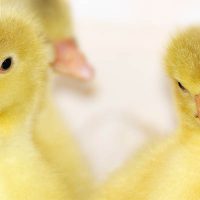Care of the Eggs and Chicks in Incubation Hatching
Eggs seem to be easy enough to take care of, but in reality, and especially if you’re going in for incubation hatching, a great deal of care needs to be taken. Everyone knows that one needs to carefully monitor and control conditions like humidity and temperature, but if you start out with dirty eggs, all your careful monitoring might be in vain.
This is because dirty eggs turn into dirty eggshell chips when the young birds are hatched, and those dirty eggshells can spread disease to the young hatchlings, perhaps causing most of them to be lost. But can’t you just wipe the eggs to clean them? Not at all.
Eggs actually have an almost-invisible protective coat that must be retained, and which is lost in wiping. If you wipe eggs, there’s a good chance that they will be invaded by germs because they lack this protective coating, leading to them getting infected, and to failed hatches. As a matter of fact, wiping an eggs vigorously, perhaps with a cloth, can force particles of dirt right into the egg through the very pores of the egg. If you have both dirty and clean eggs as possible specimens for incubation hatching, just discard the dirty eggs and choose the clean ones for incubation.
Once the chicks are hatched, there’s are whole new areas of care that you’ll need to take of them. Most people assume that the chicks need to be fed at once. Actually, they don’t need feeding in the first twenty four hours, though you can keep food and water by them, by all means. If you have space issues, you can keep them without any food or water for about forty eight hours, or two whole days, though, of course, you shouldn’t overdo things.
The reason the little birds are able to survive so long without food and water is because they absorb whatever remains inside the egg of the yoke after they hatch, and this enables them to survive for a time until food becomes available. Perhaps because they’ve been living in liquid for so long, these newborn birds have a tendency to fling themselves into water, resulting in many drowning.
There are easy ways to prevent this, such as filling the water bowl with huge marbles that just leave a little space between them to allow the beaks of the young birds to reach water, but which completely preclude drowning. These are some of the things a person needs to know about incubation hatching and poultry keeping in order to rear young birds.



